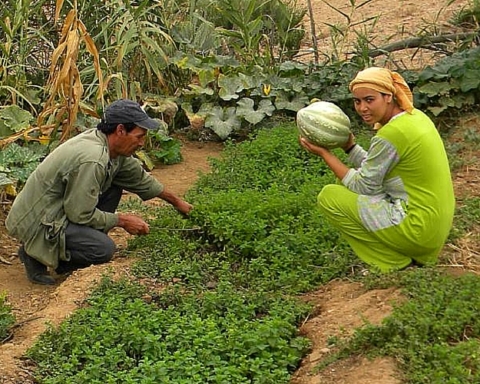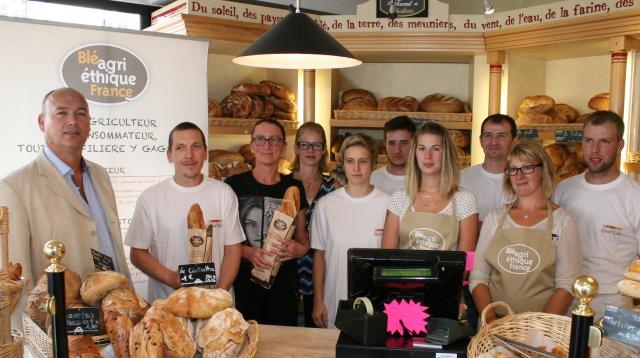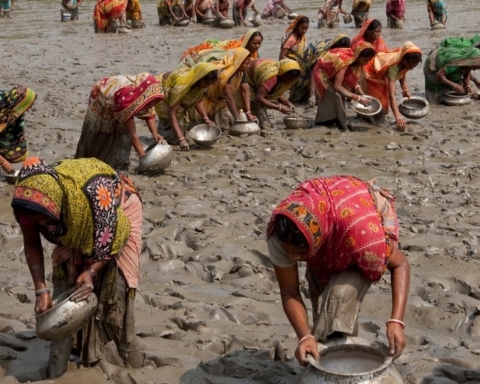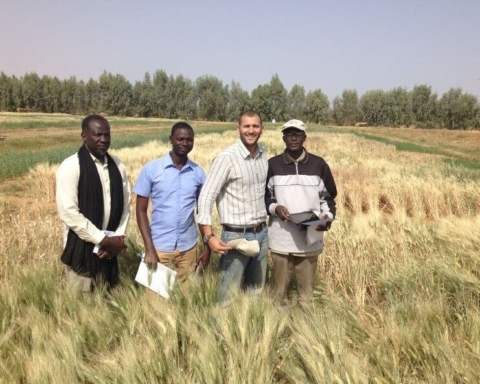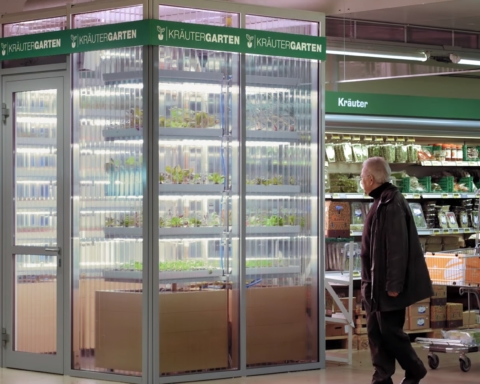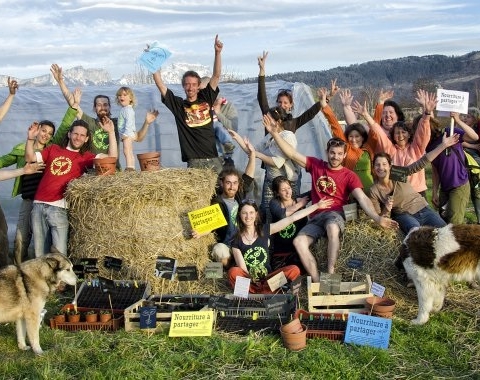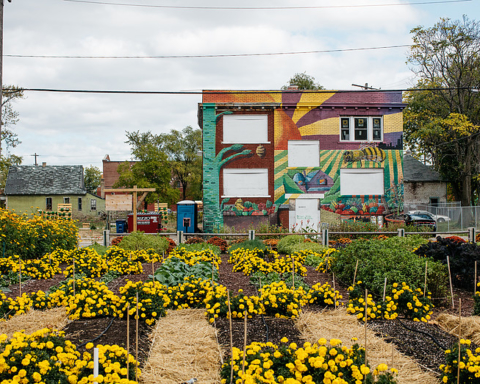Agri-Ethics reflect the moral commitment of all stakeholders in a network. From the farmer to the consumer, through the miller, industrial, baker, everyone can participate in this civic action. The motivations behind are to give a central role to the local farmers, remunerate their production to its “fair value”, and prove that globalization of food commodities are not inevitable..In France, in the small town of Torigny-les-Villes, they decided to move to the Agri-ethics device. Succeed in the difficult challenge of starting a business where everyone is a winner is the goal of the Bakery owners ‘Fournil du Château’.
At the end of the day the results are quite interesting. Everyone finds it financially viable, whether manufacturers, bakers and of course the client.
In practice, how does it work? A pact is signed between the farmer, the miller and the baker over a period of three years renewable, with a commitment for a fixed price and a fixed volume. All this is done, of course, in order to avoid speculation and price fluctuations.
The fact that this operation is a success precisely in the town of Torigny-les-Villes is not a coincidence; the sea air of this department has too much moisture for growing wheat bread, the latter being cultivated in Orne, Mayenne and Ille-et-Vilaine.
Agri-ethics is neither a label nor a brand, but a fair trade approach
Moreover, Jean-Jacques Gervaise, customer assistant in Minoteries du Château, in Ernée (Mayenne) explains: “Agri-ethics is neither a label nor a brand, but a fair trade approach, called North -North new generation, based on economic, social and environmental commitments. ”
At stake, the customer also benefits from this price guarantee.



